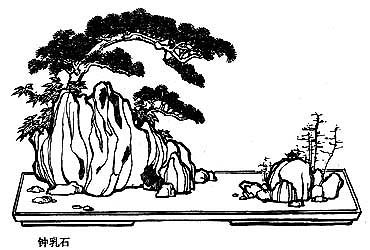道
德
經
Dao De Jing 
 – De la Voie et de la Vertu
– De la Voie et de la Vertu
La dialectique naturaliste et politique de Lao-tseu exposée en 81 textes poétiques et obscurs. Tr. Julien (fr), Waley (en), Wilhelm (de) et Lau (en).
| 1 | 2 | 3 | 4 | 5 | 6 | 7 | 8 | 9 | 10 | 11 | 12 | 13 | 14 | 15 | 16 | 17 | 18 | 19 | 20 | 21 | 22 | 23 | 24 | 25 | 26 | 27 | ||
| 28 | 29 | 30 | 31 | 32 | 33 | 34 | 35 | 36 | 37 | 38 | 39 | 40 | 41 | 42 | 43 | 44 | 45 | 46 | 47 | 48 | 49 | 50 | 51 | 52 | 53 | 54 | ||
| 55 | 56 | 57 | 58 | 59 | 60 | 61 | 62 | 63 | 64 | 65 | 66 | 67 | 68 | 69 | 70 | 71 | 72 | 73 | 74 | 75 | 76 | 77 | 78 | 79 | 80 | 81 |
Daodejing II. 78.
第 七 十 八 Section De – Chapitre LXXVIII
Parmi toutes les choses du monde, il n'en est point de plus molle et de plus faible que l'eau, et cependant, pour briser ce qui est dur et fort, rien ne peut l'emporter sur elle.
Pour cela rien ne peut remplacer l'eau.
Ce qui est faible triomphe de ce qui est fort ; ce qui est mou triomphe de ce qui est dur.
Dans le monde, il n'y a personne qui ne connaisse (cette vérité), mais personne ne peut la mettre en pratique.
C'est pourquoi le Saint dit : Celui qui supporte les opprobres du royaume devient chef du royaume.
Celui qui supporte les calamités du royaume devient le roi de l'empire.
Les paroles droites paraissent contraires (à la raison).
Julien 78
Nothing under heaven is softer or more yielding than water; but when it attacks things hard and resistant there is not one of them that can prevail. For they can find no way of altering it.
That the yielding conquers the resistant and the soft conquers the hard is a fact known by all men, yet utilized by none.
Yet it is in reference to this that the Sage said “Only he who has accepted the dirt of the country can be lord of its soil shrines; only he who takes upon himself the evils of the country can become a king among those what dwell under heaven.” Straight words seem crooked.
Waley 78
世上水最弱, 但无坚不摧, 没有什么能胜过它、替代它。
弱能胜强, 柔必胜刚, 天下没有不知道德, 但都做不到。
因此圣人说:“能承担全国屈辱的, 才能称为一国之主, 能够担当国家灾难的, 才是一国之王。”
真理听起来都不顺耳。
白话翻译
Auf der ganzen Welt
gibt es nichts Weicheres und Schwächeres als das Wasser.
Und doch in der Art, wie es dem Harten zusetzt,
kommt nichts ihm gleich.
Es kann durch nichts verändert werden.
Daß Schwaches das Starke besiegt
und Weiches das Harte besiegt,
weiß jedermann auf Erden,
aber niemand vermag danach zu handeln.
Also auch hat ein Berufener gesagt:
Wer den Schmutz des Reiches auf sich nimmt,
der ist der Herr bei Erdopfern.
Wer das Unglück des Reiches auf sich nimmt,
der ist der König der Welt.
Wahre Worte sind wie umgekehrt.
Wilhelm 78
In the world there is nothing more submissive and weak than water.
Yet for attacking that which is hard and strong nothing can surpassit.
This is because there is nothing that can take its place.
That the weak overcomes the strong,
And the submissive overcomes the hard,
Everyone in the world knows yet no one can put this knowledge intopractice.
Therefore the sage says,
One who takes on himself the humiliation of the state
Is called a ruler worthy of offering sacrifices to the gods of earthand millet.
One who takes on himself the calamity of the state
Is called a king worthy of dominion over the entire empire.
Straightforward words seem paradoxical.
Lau 78

De la Voie et de la Vertu – Dao De Jing II. 78. – Chinois on/off – Français/English
Alias Daode Jing, Dao De Jing, Tao Te Ching, Tao Teh Ching, le Tao-tö-king, Lao-Tzu Te-Tao Ching, the Laozi, Lao Zi, the Lao Tze, le Lao-tseu, The Book of the Way and its Virtue, the Way and its Power.
Le Canon des Poèmes, Les Entretiens, La Grande Étude, Le Juste Milieu, Les Trois Caractères, Le Livre des Mutations, De la Voie et la Vertu, 300 poèmes Tang, L'Art de la guerre, Trente-six stratagèmes
Bienvenue, aide, notes, introduction, table.
Index – Contact – Haut de page
